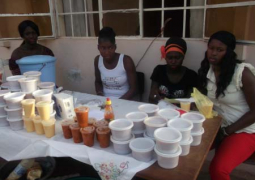The Integrated Management of Neonatal and Childhood Illness Unit (IMNCI) under the reproductive and child health program of the Ministry of Health and Social Welfare in collaboration with the Expanded Program on Immunization Unit (EPI), Health Education Unit (HEU) and the Regional Health Teams recently concluded a six-day sensitization of communities on key family practices.
The activity is one of the components of the IMNCI strategy, and this component aimed to initiate, reinforce and sustain family practices that are important for child survival namely, promotion of growth, disease prevention, appropriate care at home, and care seeking outside home.
This sensitization of communities on key family practices is a useful entry point in reaching out to communities in terms of message dissemination on improving family and community behavioral practices, management of childhood illnesses and appropriate care seeking.
The key messages that were disseminated will help families to recognize and respond appropriately when children are sick, seeking appropriate and timely assistance when children need additional care, and giving recommendations.
The main objectives of these activities are to provide families and communities with the required knowledge and skills to give children adequate home care and support, thereby strengthening their healthy growth and development.
The activities are being supported by the WHO country office.
Read Other Articles In Article (Archive)




